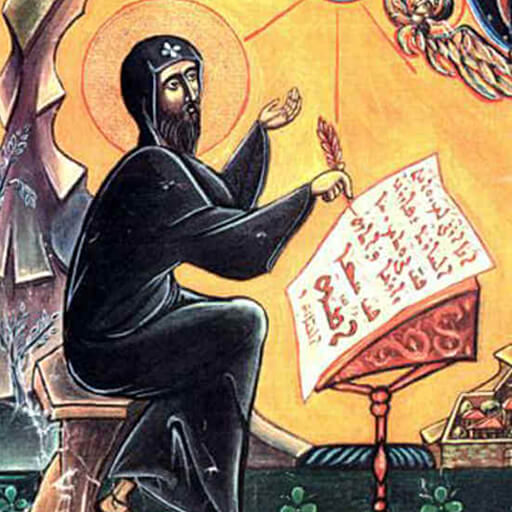Second Sunday of Pentecost: Most Holy Trinity
Sunday, June 15
Maronite Calendar
Book of Genesis 18,1-8
The LORD appeared to Abraham by the oaks of Mamre, as he sat at the entrance of his tent in the heat of the day.
He looked up and saw three men standing near him. When he saw them, he ran from the tent entrance to meet them, and bowed down to the ground.
He said, ‘My lord, if I find favour with you, do not pass by your servant.
Let a little water be brought, and wash your feet, and rest yourselves under the tree.
Let me bring a little bread, that you may refresh yourselves, and after that you may pass on since you have come to your servant.’ So they said, ‘Do as you have said.’
And Abraham hastened into the tent to Sarah, and said, ‘Make ready quickly three measures of choice flour, knead it, and make cakes.’
Abraham ran to the herd, and took a calf, tender and good, and gave it to the servant, who hastened to prepare it.
Then he took curds and milk and the calf that he had prepared, and set it before them; and he stood by them under the tree while they ate.
Letter to the Romans 11,25-36
So that you may not claim to be wiser than you are, brothers and sisters, I want you to understand this mystery: a hardening has come upon part of Israel, until the full number of the Gentiles has come in.
And so all Israel will be saved; as it is written, ‘Out of Zion will come the Deliverer; he will banish ungodliness from Jacob.’
‘And this is my covenant with them, when I take away their sins.’
As regards the gospel they are enemies of God for your sake; but as regards election they are beloved, for the sake of their ancestors;
for the gifts and the calling of God are irrevocable.
Just as you were once disobedient to God but have now received mercy because of their disobedience,
so they have now been disobedient in order that, by the mercy shown to you, they too may now receive mercy.
For God has imprisoned all in disobedience so that he may be merciful to all.
O the depth of the riches and wisdom and knowledge of God! How unsearchable are his judgements and how inscrutable his ways!
‘For who has known the mind of the Lord? Or who has been his counsellor?’
‘Or who has given a gift to him, to receive a gift in return?’
For from him and through him and to him are all things. To him be the glory for ever. Amen.
Holy Gospel of Jesus Christ according to Saint Matthew 28,16-20
The eleven disciples went to Galilee, to the mountain to which Jesus had directed them.
When they saw him, they worshipped him; but some doubted.
And Jesus came and said to them, ‘All authority in heaven and on earth has been given to me.
Go therefore and make disciples of all nations, baptizing them in the name of the Father and of the Son and of the Holy Spirit,
and teaching them to obey everything that I have commanded you. And remember, I am with you always, to the end of the age.’
الانجيل المقدس كاملا (متى، مرقس، لوقا، يوحنا) بالصوت والصورة من مزار سيدة لبنان حريصا
الانجيل المقدس كاملا (متى، مرقس، لوقا، يوحنا) بالصوت والصورة من مزار سيدة لبنان حريصا عمل يدعو للصلاة والتأمل في كلمة الرب
اداء: الاب فادي تابت رئيس المزار
اخراج: اسعد شديد
مرافقة موسيقية: بيار مطر وفادي ابي هاشم
Daily Bible Reading
According to the
Maronite Catholic Church Calendar
